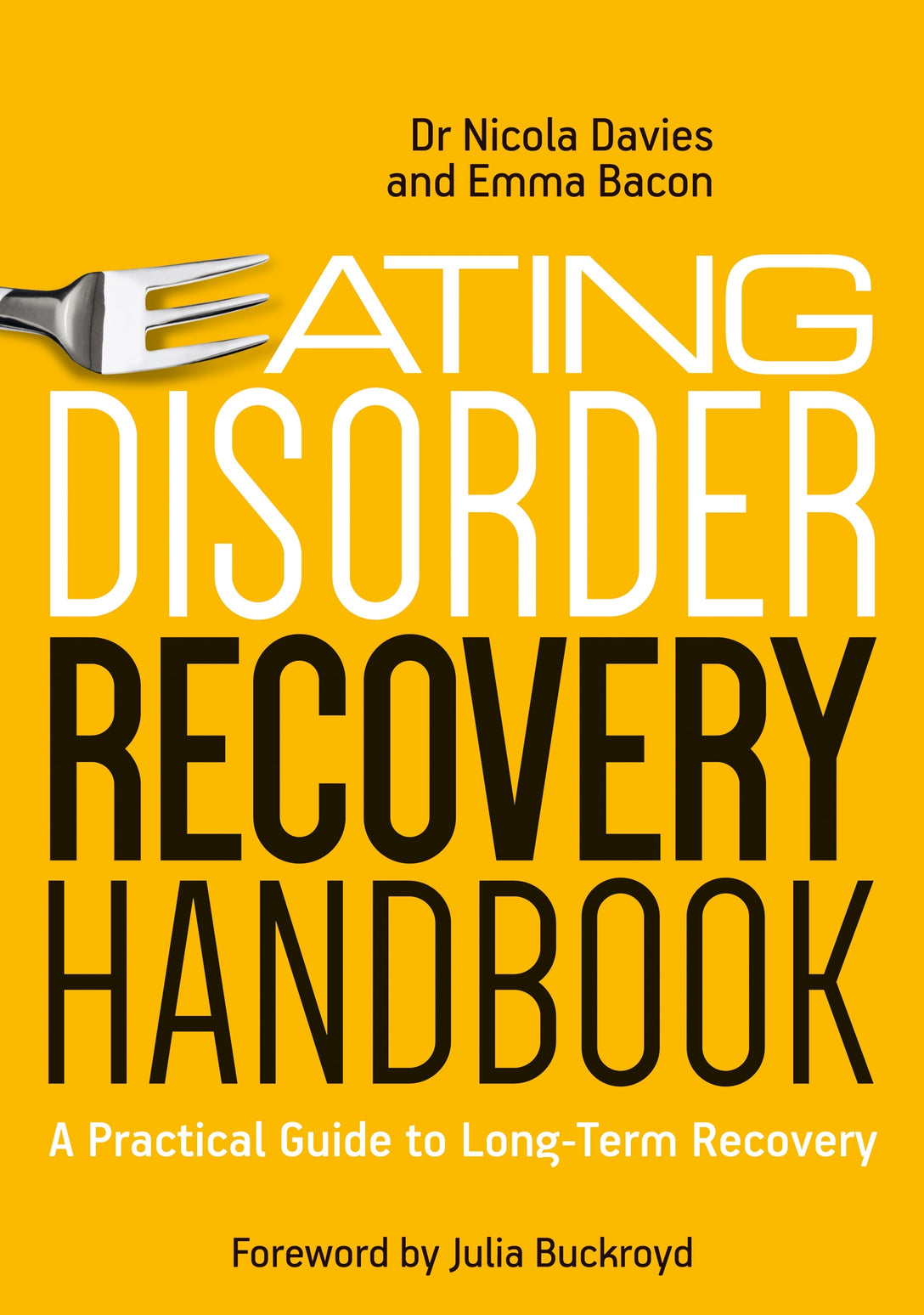
Press Reviews
Professor Janet Treasure OBE, PhD, FRCP, FRCPsych, Professor of Psychiatry at University College London and Director of the Eating Disorder Unit at the Institute of Psychiatry, King’s College London, and at the South London Maudsley Hospital NHS Trust
It is becoming clearer that the treatment ethos that is most helpful for recovery from an eating disorder is one that includes a collaborative approach to care. This book is a wonderful compendium of resources that can be used as tools for the individual and the support team to work with a joint understanding. With helpful descriptions of the wide, eclectic variety of strategies that can be useful in fostering change, this book provides a diverse resource that can be shared in a collaborative way by patients, carers and professionals.
Sarah Sims, eating disorder survivor
The topics and self study activities outlined in this book were invaluable in my understanding of myself, my relationship with food, and the real meaning behind my eating disorder. It was a fundamental tool to my recovery. It helped me to see my eating disorder from a different angle and gave me and my family new strategies to overcome it and to see it for what it really was.
Dr Pooky Knightsmith, Child & Adolescent Mental Health Specialist, and Author of Self-Harm and Eating Disorders in Schools
The Eating Disorder Recovery Handbook successfully draws on existing evidence and best practice whilst interweaving the ideas and encouragement of those who have walked the difficult path of recovery before. Offering hope, guidance and a wide range of structured activities, this book will prove a fantastic tool both for people recovering from an eating disorder and those working hard to support them.
Anonymous parent
The handbook is a comprehensive and practical tool to help not just the individual suffering with an eating disorder, but also families wanting to offer support. The destructive nature of the illness frequently pulls families apart. "How did we get to this point?" is a question frequently asked. The sections and the practical ideas in the handbook address the complexity of the illness and enable parents/family members/ carers to gain a better understanding of what having an eating disorder feels like. It provides the platform for honest communication and trust to be built/rebuilt and nurtured. We all make mistakes, despite the best intentions, and there is no point anyone blaming themselves or regretting past decisions. That is wasted time and energy! Instead, the handbook provides the opportunity to reflect in a non-judgemental way and move forward together to challenge the eating disorder.
